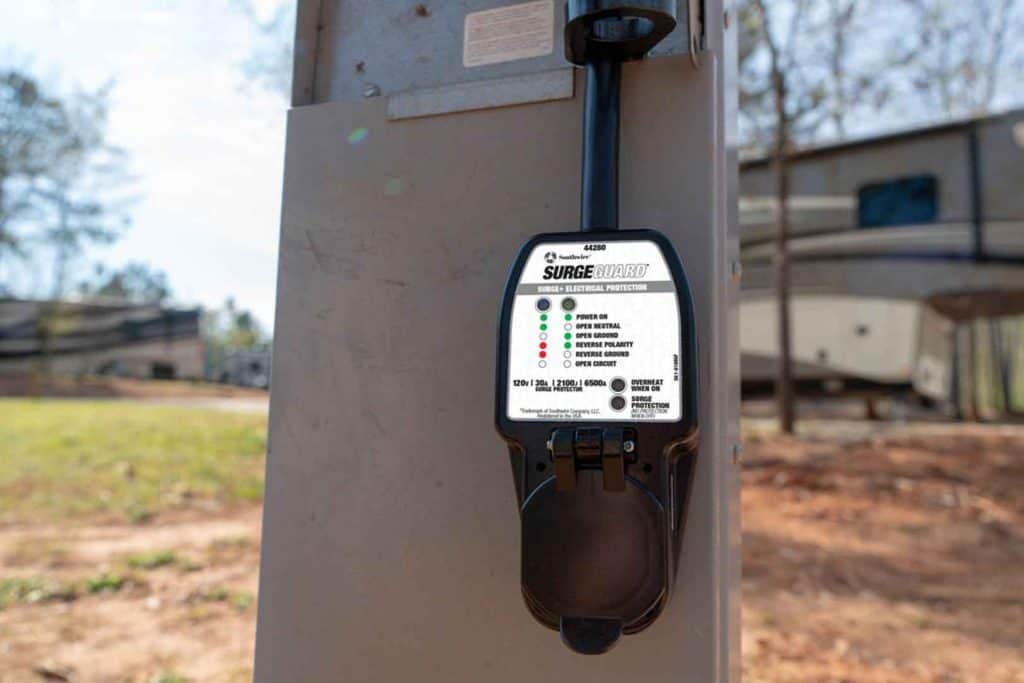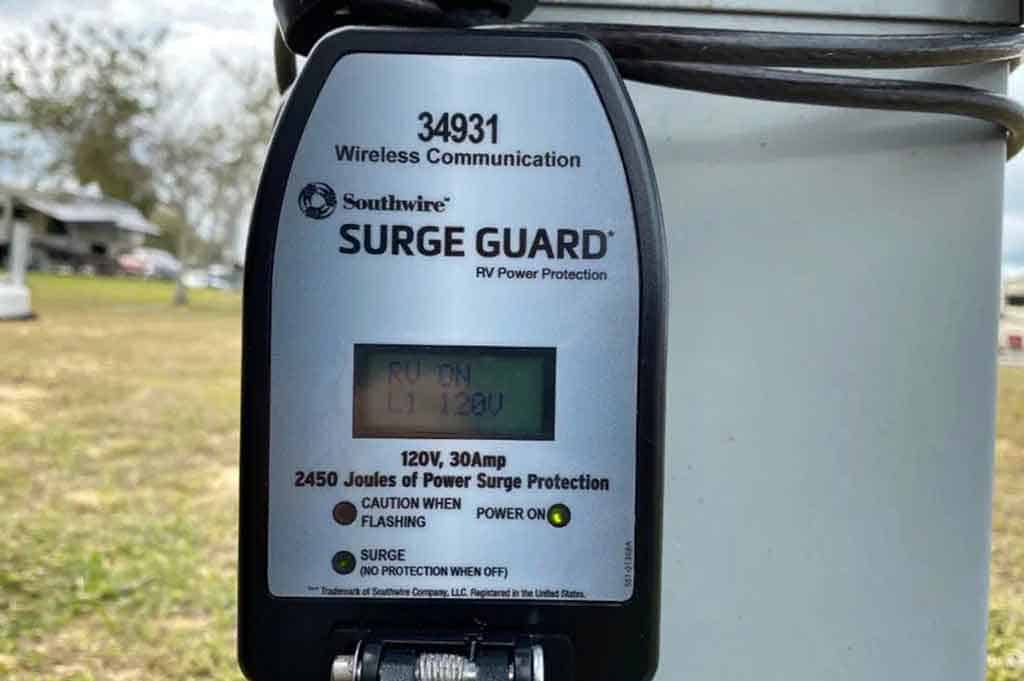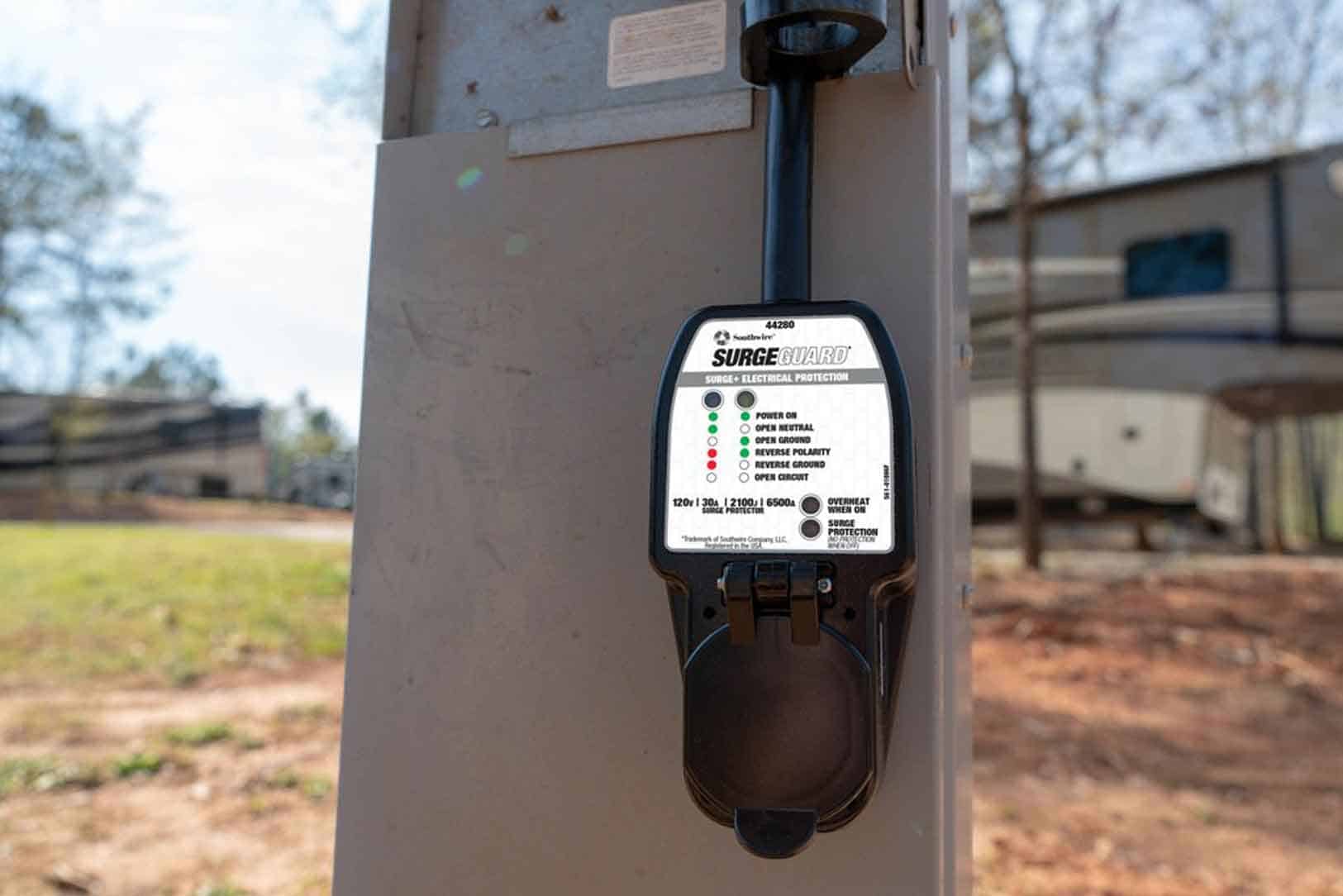Like most RV campers, you probably have several appliances in your rig for use while on the road. There should be a surge protector to protect the electronics that run on AC power, including refrigerators, microwaves, and water heaters. But how do you know how many surge protector joules you need?
The answer to this question depends on a few factors, including the type of devices you use and the number of devices you have. For example, low-powered devices won’t need a protector with a high joule rating.
We’ve put together a quick and easy guide to help determine how many joules for surge protector are necessary. Follow the steps below, and you’ll be able to find the perfect surge protector for your RV camping needs.
What Is the Surge Protector Joule Rating?
A joule is a unit of energy. One joule is equal to the energy required for raising 1 liter of water’s temperature by 1°C.
The energy determines the joule of a power source it can release over a particular period. For instance, a lightning strike can unleash around 1 billion joules on average over a second.
The joule rating for surge protector measures its energy absorption capacity before failure. So, it’s evident that a protector with a higher joule rating will provide better protection than the one with a lower joule rating.

How Many Surge Protector Joules Are Enough for an RV?
If you’ve ever been confused by the joule rating on a surge protector, you’re not alone. Here’s a rundown of the joule rating on a surge protector and how it can help you choose the right one for your RV.
The higher the joule rating, the more energy the surge protector can handle. The device is rated for a certain number of joules, and you’ll want to choose one with a rating that’s appropriate for your needs.
For RV campers, this is an essential consideration since power surges are relatively common occurrences. A surge protector with a high joule rating can protect your RV electronics from damage caused by a power surge.
Calculating the Joule Rating for Your RV
Gather all the devices you plan on using while RV camping, including laptops, smartphones, portable speakers, and other devices you may bring.
Determine the wattage of each device. The wattage is usually listed on the device itself or in the manual. If you can’t find the wattage, you can generally estimate it by looking at the power cord. A laptop, for example, will typically use about 60 watts, while a smartphone will use about 5 watts.
Once you know the wattage of each device, you can calculate the total number of watts you’ll be using while RV camping. To do this, simply add the wattage of all the devices you’ll be using. For example, if you have a laptop with 60 watts and a smartphone with 5 watts, your total wattage will be 65 watts.
One watt equals one joule/second, so one KW of electrical energy equals 1,000 J/s.
Now that you know the total wattage you’ll be using, you can find the surge protector joules for your needs. You need to find one that has a high enough joule rating to protect all of your devices.
Related: How to Secure Your RV Surge Protector
What Is the Ideal Joule Rating for a Travel Trailer?
The ideal surge protector joules for a small RV could be around 1,000 joules. It will provide enough protection for most devices.
However, 1,000 joules won’t be enough for a midsize or big travel trailer. If you have a refrigerator and microwave oven, you will need a more powerful device to protect them.
Depending on the size of your rig and the number of electronics you use, the surge protector can range from 825 to 4,000 joules.

What Features to Look for in an RV Surge Protector?
There are a few things to keep in mind when looking at the joule rating of a surge protector. The rating is a maximum value. The surge protector can handle less energy than the rating indicates.
When shopping for a surge protector, you’ll also want to look for one with a high clamping voltage. It indicates the voltage at which the surge protector will start to absorb the surge. A high clamping voltage means the protector can handle a high-voltage surge.
Also, you should look for a low let-through voltage. It determines how much voltage the surge protector will allow to pass through to your RV. You don’t want a surge protector with a high let-through voltage because that could damage your RV.
Once you’ve found the perfect surge protector and its joule rating, plug it into an available outlet, and you’ll be all set to enjoy your RV camping trip.

